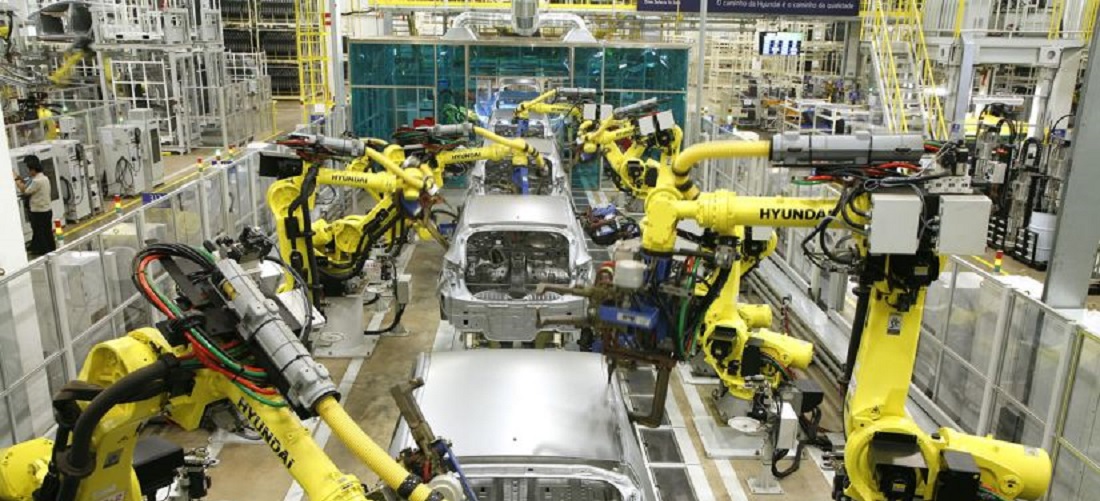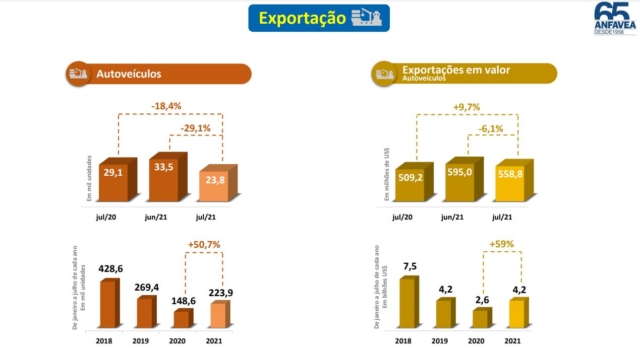
Auto production down again due to semiconductor shortage. Stocks at lowest levels in decades
Aug, 08, 2021 Posted by Ruth HollardWeek 202131
Auto production has dropped again due to the lack of semiconductors. Stocks are the smallest in the last two decades
For the second consecutive month, the production of vehicles in Brazil fell, according to a monthly survey carried out by the National Association of Automotive Vehicle Manufacturers (ANFAVEA). The drop is credited to the stoppages of some factories due to the lack of semiconductors, an item that integrates hundreds of electronic equipment in vehicles. In July, total production was 163,600 units, 2% less than in June and 4.2% below July 2020. It was the worst production for the month of July since 2003.
Source: ANFAVEA
Difficulties in the pace of production are obviously reflected both in domestic sales and in exports. The month of July had 8,000 daily licenses, the worst average in 12 months. The total of 175,500 licensed units represented a drop of 3.8% compared to June. The retreat was even more dramatic in exports, with 23,800 vehicles shipped to other countries, 29.1% less than in the previous month.
“There is internal and external demand for a greater volume of vehicles, but unfortunately the lack of semiconductors and other inputs has prevented the industry from meeting demand despite the logistical efforts made by the companies”, stated the President of ANFAVEA, Luiz Carlos Moraes. “The stocks of 85,000 units in factories and dealerships are the lowest in the last two decades, which proves the gravity of the situation”, added the official, noting that there is no forecast of normalization in the supply of semiconductors until mid-2022.
-
Nov, 30, 2021
0
Santos Brasil completes the first phase of the Tecon Santos expansion and modernization project
-
Ports and Terminals
Mar, 07, 2023
0
Audit court brings Port of Santos privatization back to debate
-
Other Logistics
Oct, 22, 2024
0
Ferroport triples iron ore exports in ten years of operation at Açu Port
-
Grains
Oct, 25, 2024
0
Soy Moratorium creates impasse for exporters


